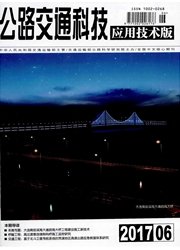

 中文摘要:
中文摘要:
评估 Xiongshao 囊的 angiogenic 效果,并且调查在人的脐的静脉 endothelial 房间(HUVEC ) 调停的可能的分子的机制的目的(, XSC ) 它的生物效果。
 英文摘要:
英文摘要:
Objective: To evaluate the angiogenic effect of the Xiongshao capsule (芎芍胶囊, XSC) in human umbilical vein endothelial cells (HUVEC), and to investigate the possible molecular mechanisms mediating its biological effect. Methods: Serum pharmacology was applied in this study, in which different doses of XSC were administrated to rats orally and then XSC-containing serum (XSC-S) was collected for the following in vitro experiments. The viability of HUVEC was determined by the 3-(4, 5-dimethylthiazol-2-yl)-2, 5-diphenyltetrazolium bromide (MTT) assay. Cell density was observed via phase-contrast microscopy. Fluorescence-activated cell sorting analysis with propidium iodide staining was performed to determine cell cycle phase. Cell migration was determined by wound-healing method. Capillary tube formation by HUVEC was examined using ECMatrix gel- based assay. Vascular endothelial growth factor (VEGF) and basic fibroblast growth factor (bFGF) expression levels were measured by reverse transcription polymerase chain reaction (RT-PCR) and enzyme-linked immunosorbant assay (ELISA) analyses. Results: XSC-S dose-dependently stimulated proliferation of HUVEC by promoting the cell cycle G1 to S progression. In addition, XSC-S treatment dramatically increased the migration and capillary tube formation of HUVEC in a dose-dependent manner. Moreover, XSC-S enhanced the expression of VEGF and bFGF at both mRNA and protein levels. Conclusion: XSC can promote several features of angiogenesis in endothelial cells through up-regulating the expression of bFGF and VEGF, suggesting that XSC may be a potential novel therapeutic agent for the treatment of ischemic heart diseases.
 同期刊论文项目
同期刊论文项目
 同项目期刊论文
同项目期刊论文
 期刊信息
期刊信息
